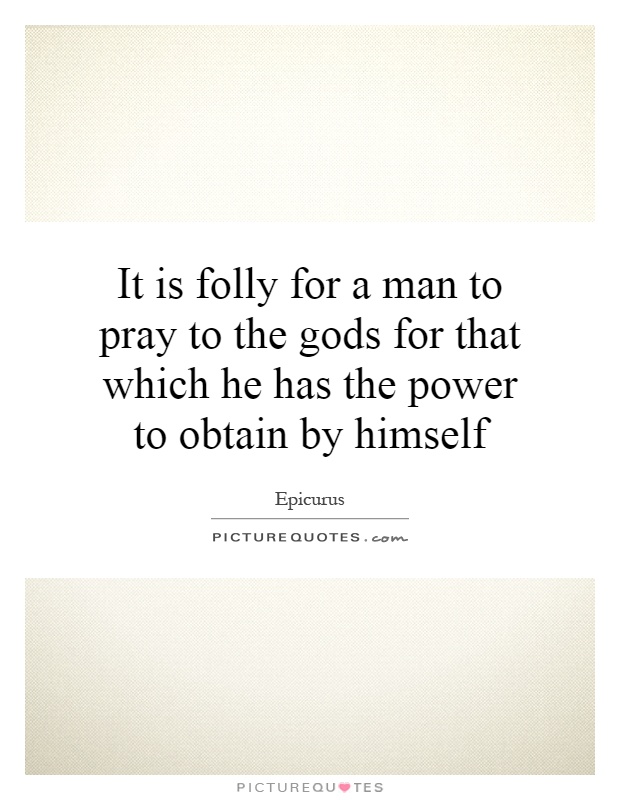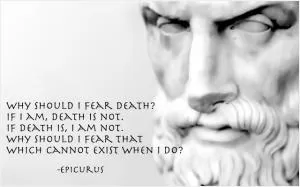It is folly for a man to pray to the gods for that which he has the power to obtain by himself

It is folly for a man to pray to the gods for that which he has the power to obtain by himself
Epicurus, the ancient Greek philosopher, believed in the pursuit of pleasure and the avoidance of pain as the ultimate goals of life. He argued that happiness could be achieved through the cultivation of wisdom, moderation, and self-sufficiency. In this context, the idea that it is folly for a man to pray to the gods for that which he has the power to obtain by himself aligns perfectly with Epicurean philosophy.Epicurus believed that the gods, if they existed, were indifferent to human affairs and did not intervene in the lives of mortals. Therefore, he rejected the idea of praying to the gods for material wealth, success, or any other external goods. Instead, he emphasized the importance of self-reliance and personal responsibility in achieving happiness and fulfillment.
According to Epicurus, true happiness comes from within and is not dependent on external circumstances. He believed that individuals have the power to cultivate their own virtues, develop their own talents, and create their own happiness through rational thought and self-reflection. By relying on oneself rather than on external forces, one can achieve a sense of inner peace and contentment that is not easily shaken by the ups and downs of life.












 Friendship Quotes
Friendship Quotes Love Quotes
Love Quotes Life Quotes
Life Quotes Funny Quotes
Funny Quotes Motivational Quotes
Motivational Quotes Inspirational Quotes
Inspirational Quotes